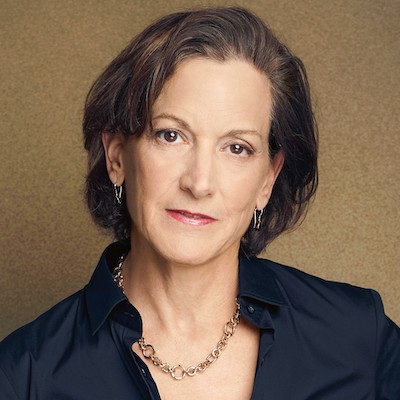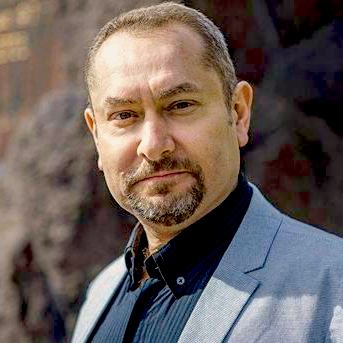Since the Russian invasion of Ukraine began on Feb. 24, in what is the largest conventional military attack on a sovereign state in Europe since World War II, no one knows what is next or how the story might end. In part, those possibilities depend on having a clear sense of why the assault began.
Providing that context is a goal of the lecture series “Russia and Ukraine: The Origins of the Crisis,” cosponsored by Emory’s Department of Russian, East European and Eurasian Studies (REEES) and Georgia Tech’s Ivan Allen College, School of History and Sociology and School of Modern Languages. It kicked off March 2 with a lecture by Timothy Snyder of Yale University.

Journalist and historian Anne Applebaum says Putin saw the 1989 fall of the Berlin Wall as a catastrophe for Russian power.
“It is the obligation of programs like REEES to provide informed discussions regarding the war in Ukraine, its historical context and geopolitical consequences,” says Juliette Stapanian Apkarian, chair of REEES and associate professor of Russian studies. “The world is a complex, often fraught, network of interrelationships, and the war in Ukraine offers a haunting warning about the fragility of human justice and peace.”
A resentful and threatened Vladimir Putin
The year 1989 was decisive. Applebaum detailed how the fall of the Berlin Wall affected the young KGB agent Vladimir Putin, who was working in Dresden, Germany, at the time. Now a staff writer for The Atlantic, senior fellow at the School of Advanced International Studies and the SNF Agora Institute at Johns Hopkins University and author of numerous books about the Soviet Union, Applebaum was young herself and in her first job in 1989.
The downing of the wall, says Applebaum, “was experienced as an extraordinary moment for people in our part of the world, including Poland and East Germany — a kind of spring of nations.” Even in the Soviet Union, the rise of perestroika and glasnost under Mikhail Gorbachev heralded “a time of excitement and experimentation.”
The effect on Putin was the opposite. He saw it as “the end of the Soviet empire, the end of the Soviet occupation of half of Germany, the end of the long reach of Russian power — and the end of his world,” notes Applebaum.
Putin has not minced words in his own account, referring to the breakup of the Soviet Union as “the greatest geopolitical catastrophe of the 20th century.” To Applebaum, given the awful realities of two world wars, “that is saying a lot.”
Despite a grip on power unique among world leaders, Putin is anxious about his legitimacy. The loss of face he feels his country experienced in 1989 was compounded by the 2011 protest movement in Moscow that brought tens of thousands of Russians to the streets shouting “Putin is a thief” and “Russia without Putin.” Then, says Applebaum, “most shockingly, in 2014 in Ukraine, a street movement forced an autocratic president [Victor Yanukovych] to leave the country.”
Although Putin controls, according to Applebaum, “the equivalent of the White House, the Congress, the judiciary, the FBI, the CIA, the New York Times, the Wall Street Journal, all of the television networks and all the major companies,” his ability to hold onto power indefinitely is not assured.
Ukrainian identity: inclusive and democratic

University of Victoria professor Serhy Yekelchyk, author of multiple books on Ukraine's history, says Putin is reaching back to the time of imperial Russia to find justifications for Russia's invasion of Ukraine.
Despite Putin repeatedly calling Ukraine a “fake” nation, Yekelchyk observes that this is not in line with Soviet orthodoxy: both Lenin and Stalin recognized Ukraine as a separate ethnic group. Instead, Putin is reaching back to imperial Russia (1721-1917), which saw Ukrainians as a subgroup of Russians.
When the coup against Gorbachev occurred in 1991, Yekelchyk was a graduate student in Ukraine and says it was “a moment of choice for many of us; the struggle for an independent Ukraine was just starting.”
Following the Orange Revolution of 2004-2005, the Putin regime sided with the most conservative forces in Ukraine, which “wanted to preserve as much as possible the Soviet way of life and the Soviet manipulation of political systems.”
Ukraine can so stirringly face down the odds against it, says Yekelchyk, because the country’s identity “has been for a long time an identity of choice.” For instance, a majority of citizens do not speak Ukrainian at home, but they nonetheless confirm Ukrainian identity in all the ways that count.
In the Russian-speaking Ukrainian city of Kherson, Russian troops expected to be met with flowers. Instead, there were mass demonstrations with Ukrainian flags. “What does this say to us?” Yekelchyk asks.
Moreover, the residents of cities in the Donbas region, parts of which are controlled by pro-Russian separatist groups, have volunteered to join Ukranian territorial defense units. As Applebaum framed it, “A fake country doesn’t fight back. We see daily evidence of the Ukrainian resistance.”
The question haunting every day
When and how does the conflict end?
Acknowledging that “no one really knows what the rules are,” Applebaum advised more creative ways of aiding the Ukrainians, including airlifts; more, better and different kinds of weapons; and organizing an exercise in the Baltic Sea to distract Putin and make him move some troops out of the area. “Make him react to us rather than us always reacting to him,” she advises.
For his part, Yekelchyk foresees a cease-fire but not a lasting peace until there is a change of leadership in Russia. And yet, all he observes about the strength of the Ukrainian identity shines through in each day’s media reports — from President Volodymyr Zelensky to the country’s soldiers to the millionaire Hennadi Butkevych, who owns the country’s largest company but joined the territorial security forces “to defend what we have been building and what each of us loves so passionately and appreciates.”
“Prevailing in a long war is possible only when the nation is united around certain ideas that they see as useful and important for the entire world,” says Yekelchyk.

